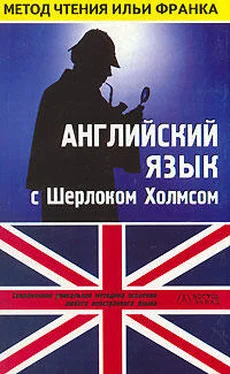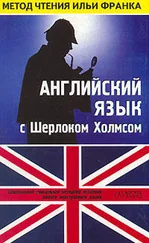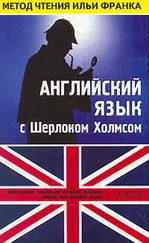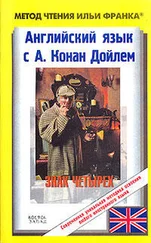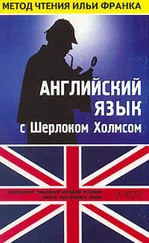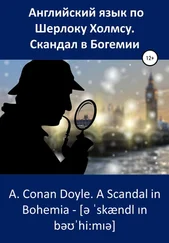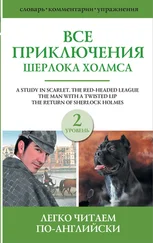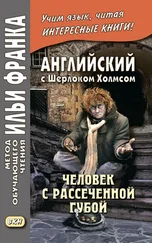convinced [kǝnˈvɪnst], ascend [ǝˈsend], scoundrel [ˈskaundrǝl], constables [ˈkʌnstǝblz]
"Convinced that something was amiss with him, she rushed down the steps — for the house was none other than the opium den in which you found me tonight — and running through the front room she attempted to ascend the stairs which led to the first floor. At the foot of the stairs, however, she met this Lascar scoundrel of whom I have spoken, who thrust her back and, aided by a Dane, who acts as assistant there, pushed her out into the street. Filled with the most maddening doubts and fears, she rushed down the lane and, by rare good-fortune, met in Fresno Street a number of constables with an inspector, all on their way to their beat. The inspector and two men accompanied her back, and in spite of the continued resistance of the proprietor, they made their way to the room in which Mr. St. Clair had last been seen. There was no sign of him there. In fact, in the whole of that floor there was no one to be found save a crippled wretch of hideous aspect, who, it seems, made his home there. Both he and the Lascar stoutly swore that no one else had been in the front room during the afternoon. So determined was their denial that the inspector was staggered, and had almost come to believe that Mrs. St. Clair had been deluded when, with a cry, she sprang at a small deal box which lay upon the table and tore the lid from it. Out there fell a cascade of children's bricks. It was the toy which he had promised to bring home.
"This discovery (находка) , and the evident confusion which the cripple showed (и явное смущение, которое показал калека) , made the inspector realize (убедили инспектора: «заставили осознать») that the matter was serious (что дело серьезно) . The rooms were carefully examined (комнаты были тщательно обысканы) , and results all pointed to an abominable crime (и все результаты указывали на гнусное преступление) . The front room was plainly furnished as a sitting-room (комната, выходящая окнами на улицу: «передняя комната» была обставлена просто, вроде гостиной) and led into a small bedroom (и вела в небольшую спальню = рядом была небольшая спальня) , which looked out upon the back of one of the wharves (окно которой выходит на задворки одной из верфей) . Between the wharf and the bedroom window is a narrow strip (между верфью и окном находится узкий канал) , which is dry at low tide (который высыхает во время отлива: «сухой при отливе») but is covered at high tide (но покрыт = наполняется водой во время прилива) with at least four and a half feet of water (по крайней мере, на четыре с половиной фута) . The bedroom window was a broad one and opened from below (было широким и открывалось снизу) . On examination traces of blood were to be seen upon the windowsill (при осмотре были обнаружены следы крови на подоконнике) , and several scattered drops were visible upon the wooden floor of the bedroom (и несколько разбросанных = разбрызганных капель /крови/ были видимы = найдены на деревянном полу спальни) . Thrust away behind a curtain (за шторой; to thrust away — отодвигать) in the front room were all the clothes (была вся одежда) of Mr. Neville St. Clair, with the exception of his coat (за исключением его пальто) . His boots (ботинки) , his socks (носки) , his hat (шляпа) , and his watch (часы) — all were there (все было там) . There were no signs of violence (не было следов насилия) upon any of these garments (на всех этих предметах одежды) , and there were no other traces of Mr. Neville St. Clair (и не было других следов) . Out of the window he must apparently have gone (через окно он, должно быть, ушел) for no other exit could be discovered (так как никакого другого выхода не было найдено) , and the ominous bloodstains upon the sill (зловещие кровавые пятна на подоконнике) gave little promise that he could save himself by swimming (почти не оставляли надежды: «давали мало обещания», что он мог спастись с помощью плавания = плаванием) , for the tide was at its very highest at the moment of the tragedy (потому что прилив достиг наивысшего уровня в момент трагедии) .
evident [ˈevɪdǝnt], abominable [ǝˈbɔmɪnǝbl], wharf [wɔ:f], ominous [ˈɔmɪnǝs]
"This discovery, and the evident confusion which the cripple showed, made the inspector realize that the matter was serious. The rooms were carefully examined, and results all pointed to an abominable crime. The front room was plainly furnished as a sitting-room and led into a small bedroom, which looked out upon the back of one of the wharves. Between the wharf and the bedroom window is a narrow strip, which is dry at low tide but is covered at high tide with at least four and a half feet of water. The bedroom window was a broad one and opened from below. On examination traces of blood were to be seen upon the windowsill, and several scattered drops were visible upon the wooden floor of the bedroom. Thrust away behind a curtain in the front room were all the clothes of Mr. Neville St. Clair, with the exception of his coat. His boots, his socks, his hat, and his watch — all were there. There were no signs of violence upon any of these garments, and there were no other traces of Mr. Neville St. Clair. Out of the window he must apparently have gone for no other exit could be discovered, and the ominous bloodstains upon the sill gave little promise that he could save himself by swimming, for the tide was at its very highest at the moment of the tragedy.
"And now as to the villains (теперь обратимся к негодяям: «что касается негодяев») who seemed to be immediately implicated in the matter (которые, видимо: «казались», были непосредственно впутаны в это дело = имели к этому непосредственное отношение) . The Lascar was known to be a man of the vilest antecedents (был известен как человек подлейшего прошлого; vile — низкий, гнусный) , but as by Mrs. St. Clair's story (как следует из рассказа миссис Сент-Клер) , he was known to have been at the foot of the stair within a very few seconds of her husband's appearance at the window (был у подножия = внизу лестницы в течение нескольких секунд появления в окне ее мужа) , he could hardly have been more than an accessory to the crime (он мог едва ли быть больше, чем соучастник = его можно считать лишь соучастником преступления) . His defense was one of absolute ignorance (его защита была защитой абсолютного незнания = он все отрицал) , and he protested that he had no knowledge (протестовал, что не знает: «не имеет знания») as to the doings of Hugh Boone, his lodger (относительно занятий Хью Буна, его жильца) , and that he could not account in any way for the presence of the missing gentleman's clothes (и что он не мог объяснить, в любом случае, присутствие = наличие одежды пропавшего джентльмена) .
Читать дальше
